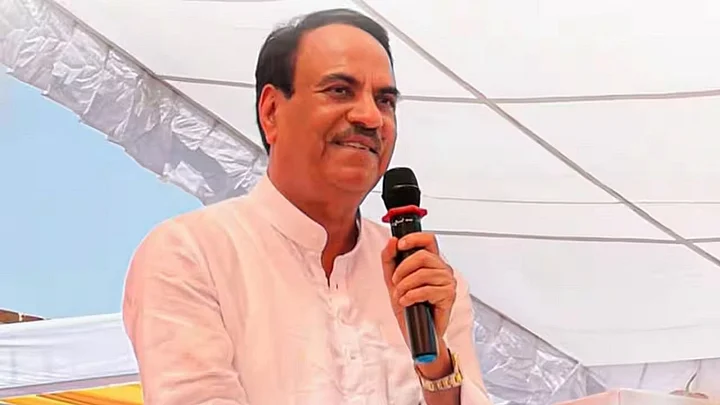Change is a constant force in the business world, demanding that organizations remain agile and responsive to survive and thrive. For businesses, especially in fast-evolving sectors, the ability to adapt quickly to new trends, technologies, and consumer preferences is critical for maintaining relevance and achieving long-term success.
Nowhere is this more evident and needful than in the hospitality industry, where shifting guest expectations, technological advancements, and a growing emphasis on sustainability are reshaping the landscape.
Meghraj Singh Shekhawat, Chairman of MRS Group, discusses this trend, emphasizing that in today’s digital age, adopting smart solutions is not just an option but a necessity for staying competitive and delivering exceptional guest satisfaction.
Trends in the industry.
Sustainability and green practices have moved far beyond being just a trend they’re now a core expectation for both guests and hotel operators. Today’s travelers are actively looking for accommodations that genuinely care for the environment, and this is reshaping how hotels run their businesses from the ground up.
India’s ecotourism market is on a strong growth trajectory, with projected revenues expected to reach US$ 26.85 billion by 2030. From 2024 to 2030, the sector is anticipated to expand at a robust compound annual growth rate (CAGR) of 18.1%, reflecting the rising demand for sustainable and nature-based travel experiences across the country.
Ecotourism, a key segment of sustainable tourism, is also expanding rapidly, fueled by increasing consumer awareness of travel’s environmental impact, government initiatives promoting responsible practices, and the rising popularity of nature-based experiences.
“Sustainability isn’t a passing trend it’s the foundation every business should build upon. Whether in hospitality or any other industry, making sustainability a core principle is essential for long-term success and genuine positive impact.” Believes Meghraj Singh Shekhawat.
Building on the global momentum for sustainable tourism, the MRS Group led by Meghraj Singh Shekhawat has established itself as a leader in eco-friendly hospitality in Rajasthan.
The group’s portfolio includes boutique hotels such as Suryagarh Jaisalmer, Narendra Bhawan Bikaner, and Mary Budden Estate Binsar, all recognized for their thoughtful integration of local heritage and a commitment to sustainability.
“At MRS Group, we believe that sustainability is not just a value it is the foundation of our operations and the lens through which we view every decision. Our commitment to eco-friendly practices is woven into every aspect of our hotels.” Says Shekhawat.
Experiential and wellness-focused travel is another trend rapidly gaining momentum in India, as travelers increasingly seek authentic, personalized, and holistic stays that go beyond traditional tourism.
India’s ecotourism market is projected to reach approximately US$ 26.85 billion by 2030, growing at a robust compound annual growth rate (CAGR) of 18.1% between 2024 and 2030. This strong growth reflects the increasing popularity of sustainable and nature-based travel experiences across the country.
This surge is fueled by rising health consciousness, greater disposable incomes, and a shift toward preventive and holistic well-being.
Destinations like Kerala, Rishikesh, and Mysuru have become hotspots for Ayurveda, yoga, and meditation retreats, attracting both domestic and international visitors. Notably, the number of wellness tourists in India rebounded sharply post-pandemic, with over 504,000 international wellness travelers visiting in the first ten months of 2023. Government initiatives such as the Ayush visa and the “Heal in India” campaign further support this growth, making it easier for global travelers to access India’s renowned wellness offerings.
This growing demand for meaningful and transformative journeys is further supported by the rapid digitization of the Indian hospitality sector. More than 65% of urban travelers now prefer hotels that offer digital conveniences such as contactless check-in, mobile room keys, and app-based service requests, according to a 2024 survey by the Hotel Association of India.
Leading hotel chains are leveraging AI and IoT technologies to deliver highly personalized wellness experiences, from customized spa treatments to virtual yoga sessions and nutrition planning. This seamless integration of technology not only enhances guest satisfaction and safety but also allows travelers to curate their own wellness journeys with ease, making digital transformation a key enabler of the experiential and wellness travel boom in India.
Meghraj Singh Shekhawat opines, “I believe the true art of hospitality lies in striking the perfect balance between innovative technology and authentic personal touch. While we embrace digital solutions to make our guests’ experiences seamless and convenient, we should never lose sight of the warmth and individuality that define memorable stays.”
These trends are not just passing fads; they are reshaping the very foundation of hospitality and are here to stay. Hotels that move quickly to embrace eco-friendly practices, cutting-edge technology, and personalized guest experiences will set themselves apart and reap the rewards of guest loyalty, operational efficiency, and long-term growth.
In today’s fast-evolving market, the early adopters aren’t just keeping up they’re leading the way and defining what exceptional hospitality means for the future.
